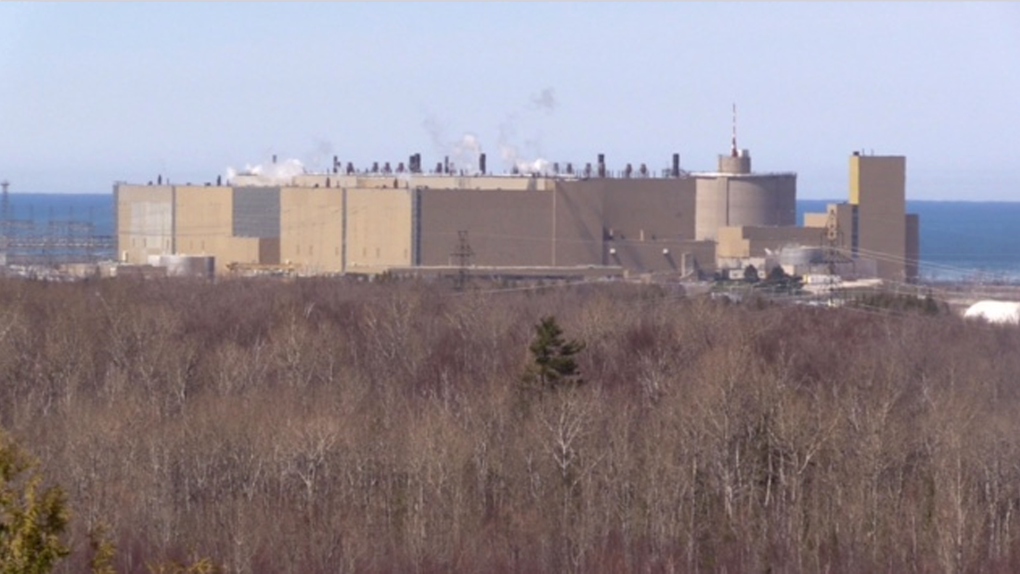‘But we’ll do it in the last 4 years lol’
It’s so cheap to make promises like this because they have no idea if they’ll still be in power by then.
Just keep kicking the can down the road.
“Canada vows that future generations will have to triple nuclear power cause we won’t”.
Well, ya. The Liberals are on the way out, so they can put into place policies and such that force future spending on things people want, that will have to get cancelled do to budgetary constraints. And if the future parties do plow forward with it, you can shit can on it and rally the people that don’t want it into a frenzy, and sweep all of this up under a rug somewhere by the time you get to the next election.
Welcome to Flip Flop First Past the Post Politics when you have a defacto two party system.
Doesn’t it take up to 15 years to get a reactor going anyway?
Assuming they do commit to getting started right away, what’s needed right now is a simple but non-condescending education campaign that is convincing for those with concerns about waste handling, whether byproducts may be used for weapons, and with assurances about the reactor’s security from potential attacks.
editing to add: Also, all sources of ostensibly emissions-free energy have to address concerns about the initial mining process and minimization of the damage it causes. We have labour laws for Canada, but materials sourced from outside have high chances of exploitative practices in addition to environmental devastation.
There are obviously some roadblocks. We still don’t have a good waste storage facility (all efforts to find one have apparently been stalled by NIMBYism or land rights or, ironically, environmentalism). We also have NIMBYism for actual construction of the plants themselves. And the provinces most likely to benefit are Saskatchewan and Alberta, but the oil lobby is too strong there. But, hey, we can dream right.
We don’t have waste storage for the greenhouse gasses produced by fossil fuel plants either but Nuclear opponents never bring that up.
Because you can’t see greenhouse gasses, makes it easier to ignore
Bear in mind that there is going to be nimby opposition to pretty much any new power project. I’ve seen it where I live with wind farms, for example, and it unfortunately does work, leading to delays, downscaling, and outright cancellation. I guess the thing is that with nuclear or hydro, you tend to run into a few colossal battles to get the things built, whereas with wind, you’re looking at hundreds of smaller clashes. Solar seems a little less contentious, but it’s also the least reliable energy source, meaning you will have to look at large-scale energy storage projects which, again, will attract a nimby element.
NIMBY for waste storage? You’d expect Canada to be one of the countries where that’s the least of the issues, what with having infinite land in the north.
Try convincing any remote community, native or otherwise, that you’re building a nuclear waste facility. And if not near enough a community, then you’re looking at having to build out an entirely new community and infrastructure to supply it.
There’s been some attempts – research storage facilities like the one in Pinawa, MB, but they’ve all been shut down.
For sure I understand it’s more tricky than just going out in the woods making a big pit and calling it a day (though the image I had in my mind was pretty close to that if I’m being honest). Just feels like there’s plenty of space far enough from anyone’s backyard but you make a good point about having to then supply that site.
Made me question where France was putting theirs and it’s in l’Aube, rural area but definitely not empty by any means. Except for the real nasty stuff that’s being temporarily kept by the producers on-site until they apparently plan to bury them in a deep geological argile formation (projet cigéo).
On site deep geological disposal is possible using boreholes. There’s a Kyle Hill video touching on it.
Above ground storage is in dry casks, is it not? Hardly that nasty. I guess if it is in pools, out might arguably be nasty.
What I meant is the stuff they want to geologically bury are the very radioactive parts that are 0.2% of the volume but 95%+ of the radioactivity, that’s all.
Here is an alternative Piped link(s):
There’s a Kyle Hill video touching on it
Piped is a privacy-respecting open-source alternative frontend to YouTube.
I’m open-source; check me out at GitHub.
Good old environmentalism. Never define what it is exactly, and fight yourself getting there as a result. I wonder if there’s a parallel timeline where global warming, species preservation, protecting the public from toxins and being anti-science all have their own separate lobbies, that occasionally collaborate when they align.
Don’t need it waste storage, just need better processing, but that is something Canada could lead https://youtube.com/watch?v=IzQ3gFRj0Bc
Also crazy some Green party members (eg Ontario leader) think that nuclear is as bad as fossil fuels, especially given the above info in the video.
Here is an alternative Piped link(s):
https://piped.video/watch?v=IzQ3gFRj0Bc
Piped is a privacy-respecting open-source alternative frontend to YouTube.
I’m open-source; check me out at GitHub.
Oil lobby and people who don’t believe in climate change that vote for wackos…
If they triple the production, the increase would cover all combustible fuels approaches and more. In this case Canada could be 100% renewable/nuclear by 2050.
Do you have any idea how much energy is used in the form of combustibles to heat homes, and power vehicles? It’s absolutely massive. Beyond this - the energy density of Petrol is something like 25-45x that of batteries - meaning for the same weight of fuel as a battery, you can go MUCH further, even factoring in the lower efficiency of an ICE engine (20-30%) vs. Electric (something like 90%). However, Electric Vehicles also have higher ware and tare on roads, tires, breaks, bridges, etc. And that means a higher TCO (Total cost of Operation) outside of the vehicle itself.
You might say “Improve Public Transport” And I’m all for it - but that requires doubling the average population density in urban centres to START to be practical. And achieving that is a decades long (like closer to half a century, if not longer) undertaking that has a huge environmental cost do to the tare down of existing buildings.
What all this means: To replace combustibles, we don’t just need a tripling of Nuclear - we need to increase it by an order of magnitude (10x it for clarity), 2 orders of magnitude increase of wind (100x), and we should aim for three orders of magnitude for solar (1000x). If you do that, AND improve average home insulation value, then we can start to get somewhere reasonable.
To be clear: We can do it.
- Solar Roof Incentives for generally sunny cities (ex. Calgary)
- Off Shore Wind
- Dual Use Installations - So Parking Lots with Solar Covers for instance. Bonus points for onsight energy storage to buffer generation for charging cars.
- SMR’s for remote area’s (think far northern area’s where diesel generators are the norm, as it reduces the need to ship fuel)
You will note that Hydro isn’t listed here - and for good reason: The environmental destruction, and long term upkeep is extremely impactful on the environment.
All of this, by the way, is something like a trillion dollar investment. And what is the Canadian Governments investment plan? 4-5 billion by 2035? If the Canadian Government wants to get serious - they need to start making the entire government beaurocracy far more lean, far more mean, and take the savings and throw it into everything that reduces power use, as well as renewable generation.
And finally: Start jacking up the minimum wage, start increasing labor protections, and the entire why? So that people can afford to invest into these things for themselves on a wide scale.
I admit I did not count the future demand from electric vehicles. When I mentioned that it would cover combustible fuels, I mean in terms of using combustible to produce electricity (e.g. to power home, etc.), not cars.
If you look at the Statistics Canada annual electric power generation tables, you can see that 82/636 TWh is currently nuclear, whereas 119 TWh comes from combustible. That means that tripling nuclear would add 164 TWh, which is 44 TWh more.
Obviously, with EV adoption, as you pointed out, this will not be enough. I agree that increasing Hydro would not really make sense, since a lot of the “good spots” are likely already taken. As for your recommended 100x and 1000x, considering we are currently producing 4TWh of solar energy and 36 TWh of wind, so at respectively 1000x and 100x, that’d be an extra 4000 TWh + 3600 TWh = 7600 Twh, i.e. 10x more than what is produced today. Let’s say a Tesla S uses 100 KWh to move 640 km, that is, 100 TWh will go for 640 million km. This means 7600TWh can power 48,640M km, so if we have a population of 50M people, that is 972M km travelled per person in a year.
Promises mean nothing. We’ll start talking once we get some contract written up.
That, and why 2050? It only takes 10 years to build nuclear plants, so why can’t it be 2040? Or just pump in more money into the joint effort into SMRs?
Honestly, until I see money exchange hands, this is no better than China commiting towards climate change goals while simultaneously building up a dozen new coal power plants.
Because they’d rather not do anything and just start a virtue signaling program like that shit going down in ontario with the ‘recycling initiative’ to distract everyone from the fact all our ‘recycling programs’ send their ‘recycling’ to singapore and other poor countries to deal with they made a bunch of trash composting programs that ‘will help the farmers’. Well, I’m friends with farmers and I’ve done my share of farming and random compost with zero chemical control cannot be utilized by industrial farmers, especially when the average education level prevents people from following instructions properly. “We’re banning black garbage bags to help the environment” = “were not going to do a damn thing but we’re going to incentivize fighting between neighbours so they don’t realize we’re the actual enemy as we continue to sell canadians down a river to our close friends and family making weapons for every war currently going on”
Hopefully they are able to utilize the more modern designs. For the most part the general public’s frame of reference is Chernobyl or 3 mile island and those are fairly old designs from the 50s/60s.
What about CANDU?
AECL was sold of the SNC_Lavalin. They tried selling new designs for a bit then gave up. They focus on supporting existing reactors now.
But this could be an opportunity to get it going again, no? It’s a reasonably modern design with a proven track record.
Not all old designs were bad. And one has to understand that the USSR, UK, France, and the US all had a shared objective (by the way, these are the primary nations designing and creating nuclear reactors back in the 50’s and 60’s). And the goal? Plutonium for Nuclear Bombs. You can imagine how this changes design Parameters.
So now lets talk about the CANDU Reactor, designed in 1955 (or there abouts).
It’s an oddity of the day - Designed for energy generation for civilian use, without the desire to actively produce Plutonium. Functionally speaking, complete fission of the material with the least degree of enrichment possible for efficient opperation was the design goal. And what you get is well, this.
Beyond this, because it is a Heavy Water Reactor (CANDU standing for Canada Deuterium Uranium), it’s moderator is well, heavy water - which is interesting as two things: If it boils off, the neutron regulator (which is slowing down neutrons to encourage fission in the core) boils off. And Boiling water takes away a LOT of heat. Beyond this, heated water will naturally circulate so even if active pumps pushing the water through the system fail, natural circulation can occur until corrective action is taken.
Yes, there are newer designs that are probably safer. But don’t just say “old designs bad” without understanding the design constraints created by the circumstances to which they were created. Look at also, all of the designs of the era. There is a reason pretty much everyone can name Chernobyl, 3 Mile Island, and Fukushima. And anyone with half a length of common sense would avoid putting a nuclear reactor on Japan - a place that has an active Valcano, is prone to tsunami’s, and sits at the intersecting point of three tectonic plates… It’s kind of a bad place for it. Not impossible to do safely, but when you use a reactor design that is basically set up for the production of plutonium by the very design constraints and such of the day: It’s not surprising.
And then we can talk about SMR’s.
My frame of reference is the latest nuclear reactor built in the US. It was six years late, $14 billion over budget, bankrupted Westinghouse, and is set to increase electric rates. The DoE had to give them a $12 billion loan just to finish construction.
I’m not scared they’re gonna blow up. I’m scared they’re gonna waste a ton of money that could be used for renewables. Heck, even the small modular reactors are running over cost and over time.
Ehhhh Westinghouse bankrupted Westinghouse. They decided they were going to cut Bechtel out of the project and build VC summer by themselves. Pocketing the “savings”. Problem is, the way things had worked for decades before is Westinghouse does the design and Bechtel does the construction. They couldn’t cut it on their own and it destroyed the company. They let the financial dinks speak louder than the engineers and payed for it dearly.
There’s a chance things would have gone much different if they didn’t try to take on a work scope completely out of their league.
Just general problems when using lowest bidder based contracting and cost-plus contracts. The same thing happens any time there’s any major project these days: pipelines, transmission lines, hydro plants, etc.
The last power plant I worked on was Chinook generating station near Swift Current, a 350MW combined cycle plant for SaskPower. At $605M is was $75M under budget, you will never hear that on a nuclear project.
The various wind installations are typically fairly close to budget and schedule as well. Hydro is problematic, and that does show in cost overruns, because it is very difficult to predict the geotechnical situation for a given site until excavation starts. Given the stress on the structures, even small differences accumulate rapidly.
The worst thermal plant projects are consistently nuclear.
The refurbishment of Lepreau was supposed to cost $1.5B and take 18 months, it ended up taking $2.5B and just under 4 years to complete.
Flammanville-3 started construction in 2007 was supposed to be operational in 2012. They’re now estimating it will complete commissioning in 2024. Costs have gone from €3.3B to €20B+.
Olkiluoto-3 started construction in 2005, was supposed to be operational in 2010, but only completed commissioning in 2022. Costs went from €3B to €11B, the not to exceed amount in the contract.
Hinkley Point C started about 2016, has been pushed back to 2028 and costs have gone from £16B to an estimated £32B.
Vogtle has been covered, but the V.C Summer plant was no better. Initial estimate was $9B, but the project was cancelled while under construction when the estimated total was projected to exceed $23B.
The numbers for nuclear sound absolutely fantastic for whoever wins the contract. 🤔
When you have a firm, that is ran by accountants - odds are, you have a firm that is great at squeezing on line items, but lacks the long term vision to see how that squeeze will lead to deficits and higher cost in the long term.
The fastest way to plummet a successful company, is to take the Industry experts out of the position (I mean people who worked their way up through the industry, and learned management along the way by experts btw), and replace them with an MBA/ Accountant who got hired into their upper management position without really working in the industry prior to.
And I pretty much guarantee you, this is what happened.
3 mile island wasn’t that big of a deal, and the mistakes there caused a complete redesign of how control panels for nuclear plants are layed out
Canada vows lots of shit
CTV 2050: Canada vows to triple nuclear power production by 2100 from what it was in 2023
Canada lies to Canadians, but first some clickbait bullshit to distract you. musical sting
And yet they’re still going to keep funding hydrogen fuel?
Fucking imbeciles.
Can’t put nuclear fuel in a car lol
So, what, electric vehicles don’t exist in your world?
The transport trucks that will go 1000km don’t.
That’s why railroads exist. JFC. Do the bare minimum amount of research about a topic before you attempt to red herring what the fuck.
But that would require basically every Canadian city to be already connect to some rail network. But that would cost too much and take too long. It would almost need to be nationalized and have been completed 1800’s. Maybe even specifically sometime in the early 1880’s.












